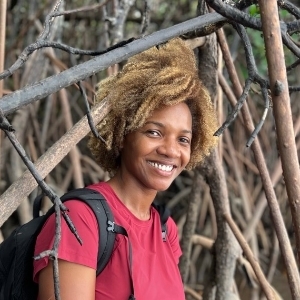
Lola
Fatoyinbo
Remote Sensing Scientist and Forest Ecologist
NASA’s Goddard Space Flight Center
Email:
lola.fatoyinbo@nasa.gov
Dr. Lola Fatoyinbo is a Remote Sensing Scientist and Forest Ecologist at NASA’s Goddard Space Flight Center. She is interested in monitoring and predicting the impact of global changes on forests and coastal ecosystems. Her research uses Earth Observing data to measure forest type, carbon stocks, extent and degradation. Dr. Fatoyinbo works on characterizing the vulnerability and response of mangroves to disturbances from land use and climate change, new instrument development, as well as applications of satellite data to Carbon monitoring and Biodiversity conservation. Her research portfolio includes projects that assess the vulnerability of mangrove ecosystems to tropical cyclones and drought, quantifying the methane emissions in coastal wetlands, developing Earth Observation driven Natural Capital Assessment methodologies for West and Southern Africa, and mapping coastal bathymetry and benthic ecosystems from space. She has lead airborne science campaigns and sits on multiple international working groups She holds a Bachelors degree in Biology and a PhD in Environmental Sciences from the University of Virginia.
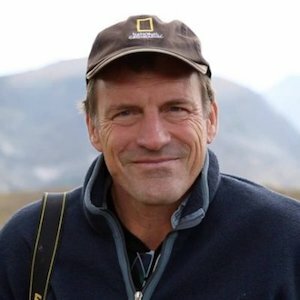
John
Francis
Recently retired as Vice President for Research, Conservation, and Exploration at the National Geographic Society, John Francis’ professional career is rooted in wildlife biology and promotion of human understanding of their delicate position within nature. Outside of his National Geographic Society responsibilities, Francis served on boards and committees for the US National Park System, the Commission for Education and Communication of the IUCN, and the US National Commission for UNESCO. In addition, he serves on the Board of Sustainable Travel International and is a key promoter of citizen science through BioBlitzes, now expanding in popularity. His Ph.D. in behavioral ecology and postdoctoral research at the Smithsonian Institution, as well as representation of more than ten thousand grantees funded by the National Geographic Society around the world, one seventh of them in Africa, provide a broad understanding of conservation and research programs globally.
Francis’ close work with the media, six years as a film producer for National Geographic, and combination of science and storytelling at this institution, give him a unique appreciation of change-making central to conservation organizations. These diverse experiences position Francis to expand the reach and efficacy of key institutions poised to empower conservation action worldwide.
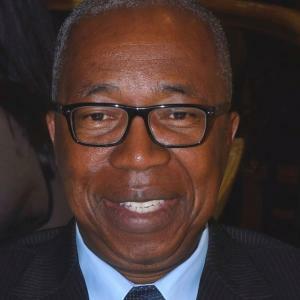
Charles
Ichoku
Charles Ichoku is a Professor of Earth and Atmospheric Sciences in the Department of Interdisciplinary Studies within the College of Arts and Sciences at Howard University. He is also the Distinguished Scientist of the National Oceanic and Atmospheric Administration (NOAA) Cooperative Science Center in Atmospheric Sciences and Meteorology (NCAS-M), a thirteen-member academic consortium constituted to diversify the student population trained in Atmospheric and Environmental Sciences, Meteorology, and other fields that are aligned with NOAA’s mission enterprise.
Dr. Ichoku received his Ph.D. in Earth Sciences from the Pierre & Marie Curie University, Paris, France, and his M.S. and B.S. degrees in Remote Sensing and Surveying, respectively, from the University of Nigeria, Enugu Campus. Prior to joining Howard University in the fall of 2018, he was a Research Physical Scientist at NASA Goddard Space Flight Center, where he was involved in a variety of Earth Science research and related activities for 20 years (1998–2018). His scientific activities over the years have included developing and applying both experimental and remote sensing approaches to research in interdisciplinary earth sciences. He is actively involved in the development of innovative approaches for characterizing land-atmosphere interaction processes, analyzing the energetics and emissions of wildfires and biomass burning, evaluating atmospheric aerosol retrievals from satellite observations, and understanding the impacts of these phenomena on the environment and climate. Dr. Ichoku has trained and mentored a large number of undergraduate and graduate students, as well as postdocs and early-career scientists and university faculty, and has won several NASA individual and group achievement awards. He has published more than 80 papers in peer-reviewed scientific journals and has delivered multiple dozens of invited and keynote talks at a variety of international and national conferences/workshops and research seminars.
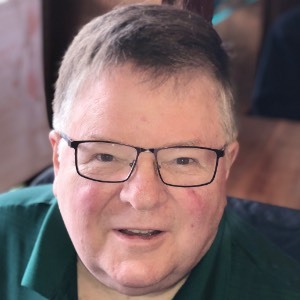
Daniel
Reifsnyder
Dan Reifsnyder is currently an adjunct professor at the University of Virginia’s Batten School of Leadership and Public Policy. He spent over 40 years in Federal Service, most recently at the Department of State, where he was Deputy Assistant Secretary for Environment and led U.S. efforts under the Congo Basin Forest Partnership. In 2015, he co-chaired the U.N. negotiations that led to the Paris Agreement on climate change. He began working on the climate issue in 1989 and helped negotiate both the U.N. Framework Convention on Climate Change and its Kyoto Protocol. He also taught at Princeton’s Woodrow Wilson School of Public and International Affairs.
Dr. Reifsnyder earned a Ph.D. in international relations at Tufts University’s Fletcher School of Law and Diplomacy. He has a law degree from George Washington University and a master’s degree in Russian Area Studies from Georgetown University. He did his undergraduate degree at Trinity College in Hartford, CT, and studied in Leningrad and Paris. He is a member of the Virginia and District of Columbia bars. He has received numerous awards including three Presidential Rank Awards, EPA’s Ozone Layer Protection Award and the Business Council for Sustainable Energy’s Leadership Award.
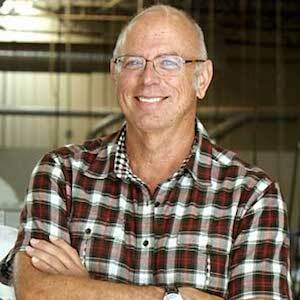
Bob
Taylor
Bob Taylor co-founded Taylor Guitars in 1974 and has grown the company into the leading global builder of premium acoustic guitars. Renowned for blending modern, innovative manufacturing techniques with a master of craftsman’s attention to detail, Taylor guitars are widely considered among the best-sounding and easiest to play in the world. The company was a pioneer in the use of computer mills, lasers, and other high-tech tools and proprietary machinery, and today, Bob Taylor is widely recognized throughout the musical instrument industry as the visionary acoustic guitar manufacturer. In addition to its forward-thinking approach to guitar design and manufacturing, Taylor has applied that same approach to its wood sourcing and environmental sustainability initiatives.
Taylor himself is dedicated to the pursuit of best practices in forest management, new models of reforestation, and bringing ethically harvested tonewoods to market. He is heavily involved in efforts to improve the sustainability of Cameroonian ebony, and provided a gift of $400,000 to UCLA to support research at CBI.




